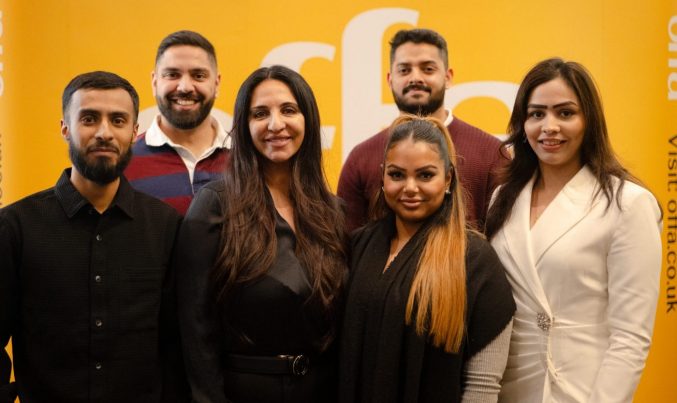Fake News Is Good News For Traditional, Mainstream Media
By Bridging Loan Directory
Fake news is good news for traditional, mainstream media outlets, according to a new study commissioned by corporate communications agency Instinctif Partners.
A survey of 2,000 consumers reveals fake news represents a significant opportunity for traditional, mainstream media outlets to rebuild and re-establish their credentials and brand values. The rising concern over fake news highlights the public’s strong appetite to receive news from media outlets with well-resourced news teams representing committed “boots on the ground”.
Instinctif asked the public if they agreed that the increased coverage of fake news had highlighted the need to get their news from a source with professional news teams dedicated to discovering the truth. While 60% agreed it had, only 7% disagreed.
The findings, which are contained in a new white paper, “Fake News: Can It Save the Traditional, Mainstream Media?” available for download at http://instinctif.com/insights/fakenews/ also show that the rise in fake news has made the public more wary of clicking on stories from non-traditional news sources. 39% of respondents to the Instinctif poll say the increasing prominence of fake news has made them more wary of clicking on stories from non-traditional news sources.
James Staunton, partner at Instinctif and author of the white paper said:
“The whole issue of fake news has highlighted the value of professional news brands and their traditional strengths – such as the origination of quality, balanced, fact-checked responsible journalism that has been through a robust editing process rather than generating automated click-bait. Ironically, fake news has now served to place these qualities and strengths in stark relief. By seizing this opportunity, the traditional, mainstream media can win back the initiative. Until now they have had very limited success in meeting the challenge posed by Facebook and Google, focusing their efforts mainly on cost cutting. While their business models have been undermined and their high production values increasingly challenged over the last 20 years, it’s not too late to get back on the front foot given the evidence of our findings.”
EDITORIAL POLICIES VS ALGORITHMS
The fake news issue has also highlighted the dangers of relying on “news sources” that choose what people read via secret algorithms – algorithms that the public do not have access to. When Instinctif asked if fake news had highlighted the need to get news from sources that choose what is printed via publically available editorial policies, 59% of people agreed, while only 7% disagreed.
The results show that 44% of news consumers think they would trust a news source more if they knew what their editorial policies were – while only 18% think they would not (38% said they didn’t know).
Half of those polled by Instinctif (50%) agreed that “we are moving into a ‘black box society’” – a world in which human freedoms and options are increasingly influenced by mysterious algorithms. Just 7% disagree. Meanwhile, almost two thirds of the public agree that Facebook is a “for profit form of social infrastructure with immense and unprecedented power over our lives” – while only 6% disagree.
PARTISAN BLOGS VS BOTH SIDES OF THE STORY
The public also said that the rise in fake news had made them more likely to read a media outlet that sets out both sides of a story – even if they disagree with one side of the argument. While 57% said were more likely to turn to outlets that gave both sides of the story, only 6% said they disagreed they were not.
Tali Kramer, partner at Instinctif said:
“According to analysis conducted by BuzzFeed during the first two weeks of the election campaign, articles by AnotherAngryVoice and other similar alt-left media publications such as The Canary, Evolve Politics, and Skwawkbox were consistently and repeatedly going more viral than mainstream UK political journalism. But there’s a huge gap between the shareablity of their content and the level of trust the public have in them. These sites are attacking the supposed bias, prejudice, and sloppiness of the mainstream media – but they’re seen as far less balanced or reliable than the traditional media.”
The Instinctif study also revealed that the public trusted radio and TV more than traditional newspapers (either in their print or online versions). However, these were all trusted more than the websites or social media feeds of companies, political parties, or government departments – or the twitter feeds of independent users not associated with the traditional, mainstream media. The least trusted sources of news were the Facebook pages of independent users not associated with the traditional, mainstream media plus hyper-partisan blogs.
THE TRUTH DOESN’T MATTER TO SOCIAL MEDIA
The public is suspicious of the motives of non-traditional news media. When we asked what they thought was important to sites such as Facebook and Twitter when it came to news, just 19% said “the truth” while almost half, 49% said “whether it is shared or liked”. And when Instinctif asked who they thought was the most concerned with the accuracy of the news they publish, just 11% said Facebook while 46% said the traditional, mainstream media.
THE SOLUTION: REGULATE FACEBOOK LIKE A PUBLISHER
This goes some way to explaining why the public does not see Facebook or Twitter as effective in tackling the problem of fake news. When asked who had done the most to combat fake news, just 25% of respondents to our poll said platforms such as Facebook or Twitter.
But 44% of respondents said that traditional, mainstream media – from broadsheets and tabloids to TV and radio, had done more to tackle the issue – with 18% mentioning fact checking websites and only 6% mentioning politicians.
SOCIAL MEDIA GIANTS ARE PUBLISHERS
The public clearly thinks that Facebook should accept the responsibilities and duties associated with being a publisher, with 66% agreeing and only 16% saying it should not and that Facebook is simply a tech company.
Furthermore, just 29% believe that digital giants such as Facebook and Google are simply delivery platforms while 57% think they are publishers or platform-publisher hybrids.
To improve trust in the media, Facebook should be regulated in the same way as the newspaper and magazine industry.
The Independent Press Standards Organisation (IPSO) is the independent regulator of the newspaper and magazine industry. It aims to uphold professional standards of journalism in the UK, and to support members of the public in seeking redress where they believe that the Editors’ Code of Practice has been breached (the Editors’ Code deals with issues of accuracy as well as invasion of privacy). IPSO is able to consider concerns about editorial content in newspapers and magazines, and about the conduct of journalists. IPSO handles complaints and conducts its own investigations into editorial standards and compliance. It can require the publication of prominent corrections and critical adjudications, and has the power to issue fines.
When the public were asked what they made of regulation, 57% said they would trust social media sources more if they were regulated like newspapers and magazines while only 20% disagreed.
James Staunton said:
“The public is very clear on the issue of regulation. They think social media platforms are publishers and should be treated as such in the eyes of the law.”
UNREGUALTED INTERNET A THREAT TO THE TRADITIONAL, MAINSTREAM MEDIA
More than half the public (56%) said that the biggest threat to the traditional, mainstream media was the growth of the unregulated internet, the “spawning-ground of fake news”, whose competition for advertising revenue hits the traditional, mainstream media. Almost a quarter (23%) said the greatest threat was campaigners such as Stop Funding Hate who aim to stop companies from advertising in (and thus providing funds for) certain British newspapers.
Half of the consumers Instinctif polled (52%) said they agreed that international behemoths like Facebook are undermining the hard work of traditional news outlets while only 11% disagreed.
Just 20% believe that the internet is a self-regulating universe of free speech in which good science will automatically drive out bad while 40% disagreed.












You must be logged in to post a comment.